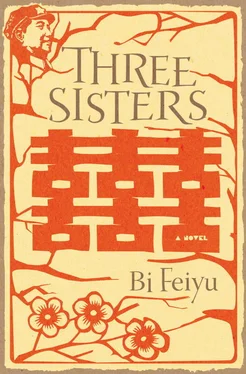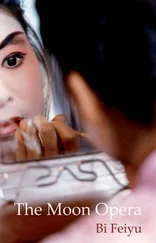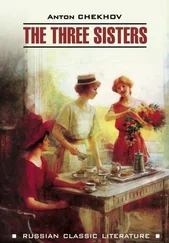Truth is, that was unfair to Yumi. She got married when Guo Jiaxing decided it was time, and his decision rested solely on when his current wife died. She left this world in late March, and the “double seven” period of mourning—forty-nine days—ended on the twenty-eighth of May, when Guo announced that he was remarrying. Not deigning to visit Wang Family Village personally, he sent a clerk from the commune on the official speedboat, who set off a string of firecrackers as he passed beneath the bridge near the stone pier. Firecrackers in May—nothing could have sounded stranger. But, undeniably, they heralded a happy event. People on the riverbank saw the pair of red paper cutouts on the boat’s windshield. The skipper was bugling the boat’s arrival as it nestled up against the pier, leaving in its wake a V formation of waves that raced to both banks like the haughty dogs of a powerful master and pounced on the legs of the women standing on the pier. With shrieks of alarm, they jumped onto the riverbank with their buckets. The waves ceased when the boat was tied up at the pier and the clerk stepped out of the cabin.
It was a hasty wedding, a little shabby even, but as the commune speedboat was tied up at the stone pier, it didn’t actually seem hasty or shabby; it succeeded in giving the impression of extravagance, even an air of implied superior power, since Yumi’s bridal transport was to be the speedboat.
She betrayed none of the bashful confusion so common to and expected of brides-to-be; she was unruffled, brash and overweening, audacious and boastful. In other words, she behaved like someone with a powerful backer. She’d cut her hair short, which made her look almost athletic, ready to take on the world. She was wearing a neatly pressed red polyester top that was sheer, rich-looking, smooth, and stiff.
As she traveled the short distance from her home to the waiting speedboat, she created the unique impression of someone who was fond of both festive feminine attire and military bearing. She looked at no one as she walked alongside the clerk, but she knew that everyone was looking at her. The way the clerk, a dignified man, bowed and scraped made it clear that he was not the groom, and the villagers knew instinctively that her husband was no ordinary man. Instead of entering the cabin when she boarded, Yumi sat on a bench in the open-air stern. The banks of the river were packed as she sat there proudly, looking less and less like a resident of Wang Family Village.
The arrival of Yumi’s father, Wang Lianfang, silenced the jabbering crowds. Several months earlier, after serving as the village Party secretary for twenty years, he had lost his job and been driven out of the Party. Why? He’d wound up in the “wrong bed.” The wrong bed indeed. Over that twenty-year period he had slept with many women, and had been heard to say that he’d maneuvered his way through the three generations—old, middle-aged, and young. But this last episode had constituted a major offense, a real transgression. One day, sometime later, when he was mightily drunk, he was heard to chant: “One must never screw a soldier’s wife.” On this day, when he reached the pier, Wang surveyed the speedboat with the flair and dignity of a village secretary; he still looked every bit the Party member. He raised his arm and, with a flick of the wrist, said, “Off you go.”
The motor started up, sending waves racing to shore like dogs chasing a bone. After the boat had traveled a short distance, it turned in a wide circle and headed back; by the time it passed the pier, it was up to full speed. Yumi’s short hair stood up in the wind; her blouse fluttered. She sat facing the wind, looking like one of those intrepid women in propaganda posters, a woman who could charm any man and still look death in the face without flinching. The boat roared into the distance with the skipper sounding his horn repeatedly until only Yumi’s red jacket was visible, waving like a flag.
Yumi’s grandfather, grandmother, and five of her six sisters—Yusui, Yuying, Yuye, Yumiao, and Yuyang—were among the crowd of wellwishers; even her six-month-old baby brother was there in the arms of Yusui.
Her mother, Shi Guifang, had seen her only to the gate before returning to her room in the west wing, all alone in an empty and eerily quiet house. As she sat on the covered chamber pot she thought back to when Yumi was a little girl suckling at her breast. Then she recalled how Yumi would drool when she sucked her thumb, her two little eyes surveying her surroundings like a thief, the glistening spittle stretching like rubber.
When Shi Guifang clapped her hands behind Yumi, the girl’s large head would spin around and, because it rested on such a thin neck, would wobble a few seconds before steadying. Then she’d laugh, showing her gums, and reach out with both arms, pudgy as lotus roots, to grab hold of her mother. Scene after scene, it seemed like only yesterday, and now here Yumi was, about to be married, soon to be a wife and mother—to belong to someone else. Shi Guifang felt a crushing sadness. The only reason she didn’t cry was that she didn’t want to spoil her daughter’s wedding day. And this was not the sole cause of her sadness; there was another even deeper one. Yumi had only told Guifang of her wedding plans a few days before. That is to say, she had kept everyone, including her mother, in the dark about her impending wedding. Shi Guifang had always assumed that Yumi and the aviator, Peng Guoliang, were still romantically involved. Several months earlier during his visit, they had grown inseparable, shutting themselves up in the kitchen and hardly ever leaving. Looking back now, it had been an unattainable dream for Yumi.
A few nights earlier, Yumi had said, “Ma, I’m getting married.” What a shock that had been. Guifang had a bad feeling about it.
“To whom?” she had asked.
“The deputy director of the Commune Revolutionary Committee. His name is Guo Jiaxing,” she had replied.
So, a second wife. Desperate to know more, Shi Guifang did not have the nerve to ask any more questions when she saw the determined look on her daughter’s face. But like mothers everywhere, she could guess what was in her daughter’s heart, what fruit had been planted, and what flowers had grown. If Wang Lianfang had not suffered the calamity of losing his job and Party membership, the courtship between Yumi and her aviator would still be moving forward. And even if he’d called off the marriage, Yumi, with her good looks, would not have had to go to such extremes. She’d have found a marriage partner who would have helped erase the stain on her family’s reputation. Suddenly beset by heartache, Shi Guifang covered her nose with a sheet of toilet paper. A sensible child can cause all sorts of anguish in a mother.
The third daughter of the family, Yuxiu, also stayed away from the pier. Yumi did not see Yuxiu anywhere as she searched the crowd of well-wishers before stepping into the boat. She knew why: Her sister would never show up anyplace where there were wagging tongues. Truth be told, Yuxiu was the one Yumi worried about the most. They had always been at odds with each other. Their mother often said that the “bad blood was a carryover from a previous life.”
Yumi did not like Yuxiu, and Yuxiu felt the same way toward her. They were forever hatching schemes against each other, and over time their mutual animosity resulted in the creation of two camps among the seven sisters. Yumi commanded the loyalty of Yusui, Yuying, Yuye, Yumiao, and Yuyang; Yuxiu was a commander without an army.
As the eldest daughter, a mother figure herself, Yumi was in a position of authority. Her sisters, all but Yuxiu, did what she said. Yuxiu would not give Yumi the respect she desired. Her natural asset—her beauty—was the source of her defiance. She had beautiful eyes, a lovely nose, pretty lips, and perfect teeth. She was quite simply everything a young woman could want to be, and this was why she had developed undisguised arrogance. She was not just beautiful; she was obsessed with her beauty, her mind focused solely on how she looked. Her hair, for instance. Although she wore braids like all the other girls, she managed to distinguish herself by leaving stray locks at her temples, which she twisted around her fingers so they would curl like melon vines alongside her ears. While that might not seem like much, it was eye-catching, different, coquettish, and reminiscent of the female enemy agents in the movies. She was a bundle of affectations, always acting a part, her attitude one of insouciance.
Читать дальше











